
9 Things to Know Before Going to Greece
Greece is more than a destination; it’s a dreamy world of ancient wonders, serene beaches, and lively culture perpetually bathed in the golden Mediterranean sun. This enchanting slice of the earth hasn’t just witnessed history; it’s actively participated in shaping it as the cradle of Western civilization. But before you board that plane, there are some essential things you should know before going to Greece.
Essential Guide to Navigating Greece
- Respect Local Traditions: Honor the ‘mesimeri’ siesta and plan around it.
- Prepare for Sunday Closures: Sundays are rest days, with stores typically closed.
- Anticipate Delays: Timeliness varies; schedules may be more relaxed.
- Orthodox Influences: Being mindful of Greece’s predominant faith enriches experiences.
- Historic Silence: Quiet reflection is key at ancient temples like the Acropolis.
- Smoking Culture: Expect liberal smoking norms, with fewer non-smoking areas.
- Best Visit Time: Off-season offers a serene, introspective charm ideal for exploration.
- Varied Transport: Enjoy the adventure across land, metro, or sea.
- Greek Gastronomy: Dine family-style on ‘mezedes’ and accept ‘syntrofia,’ the complimentary dish.
- Shopping Tips: Invest in famed olive oil and artisanal goods, but approach the fur trade cautiously.
- Safety First: Tread carefully among historic sites to avoid injuries.

The Ultimate Guide to Greece: Tips Every Traveler Should Know
1- Respect the Siesta – Plan Around the Rest
The Mediterranean pace is not just a cliche. It is a way of life, an honor to tradition. Remember to mesh your mornings and evenings around the mesimeri, the local siesta, where everyone – from tourists to the tavern owners – takes a break. Waiting until after five for administrative tasks or visiting islands during the right hours will ensure you don’t just see Greece, but experience it.
Sunday Stasis – and Other Religious Observations
In Greece, Sunday is a day of rest, even for the shops. It serves as a gentle reminder of the sanctuary in the everyday rhythm — something more cultures might benefit to observe.
Plan for Delays
Greece may not be synonymous with punctuality. Buses might run on “island time,” and shops might open a little later than advertised. Go with the flow, adjust your schedule accordingly, and consider these delays part of the adventure.

2-Greece is an orthodox country
Greece is an orthodox country, and this is manifest in the wealth of ancient and modern churches you’ll encounter. While it’s not mandatory to practice any particular faith, being conscious of this will enrich your experience.
Visiting Ancient Temples
Whether it’s the Acropolis of Athens, the Temple of Apollo at Delphi, or the cliff-top monasteries of Meteora, the temples of Greece stand as stark reminders of a bygone era. Remember, when walking the hallowed grounds, quiet reflection is often more powerful than any words spoken.
3-Navigating the Smoke Screen: Smoking in Greece
Greece, like many European countries, is quite liberal when it comes to smoking. While this might not be to everyone’s liking, it’s a part of the local culture. Be prepared for the occasional cloud indoors and don’t take it personally – it’s just a different social norm.The non-smoking areas exist, but not in the same enthusiastic measure as you may be accustomed to.
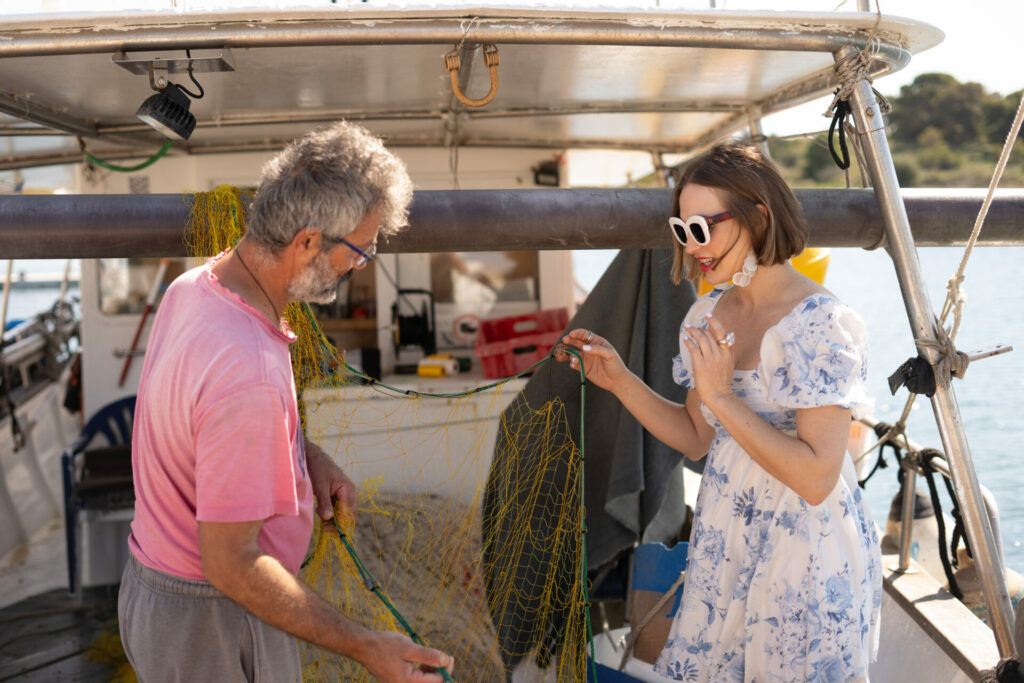
4- When is the best time to visit Greece?
When is the best time to visit Greece? Summer surely for beach lovers and flower-gazers, but what about the off-season? The ‘other’ Greece is a haven for the curious few. From late autumn to early spring, the land of the gods transforms, revealing a more introspective charm. This is the time for serene island exploration and embracing the wild beauty of the flora. But remember, the off-season demands preparation. Comfortable shoes, appropriate clothing, and a serviceable command of English can make your ‘quiet’ Greek escape just as memorable.
5-The Greek Transport
Getting around Greece is an adventure in itself, with an intricate tapestry of transport options. The Hellenic Republic is not just the land of philosophers and feta; it’s also the domain of metro mavericks, the road rebel, and ferry fanatics.
For the urban explorers, delight in the comprehensive network of buses, the city-stitched metros, and the Athenian anarchic charm. For the island-hoppers, take a page out of the sailor’s handbook and set your course on the ferry fleet that connects the riff of Greece’s island repertoire. Here is the ultimate guide to navigating greek ferries.
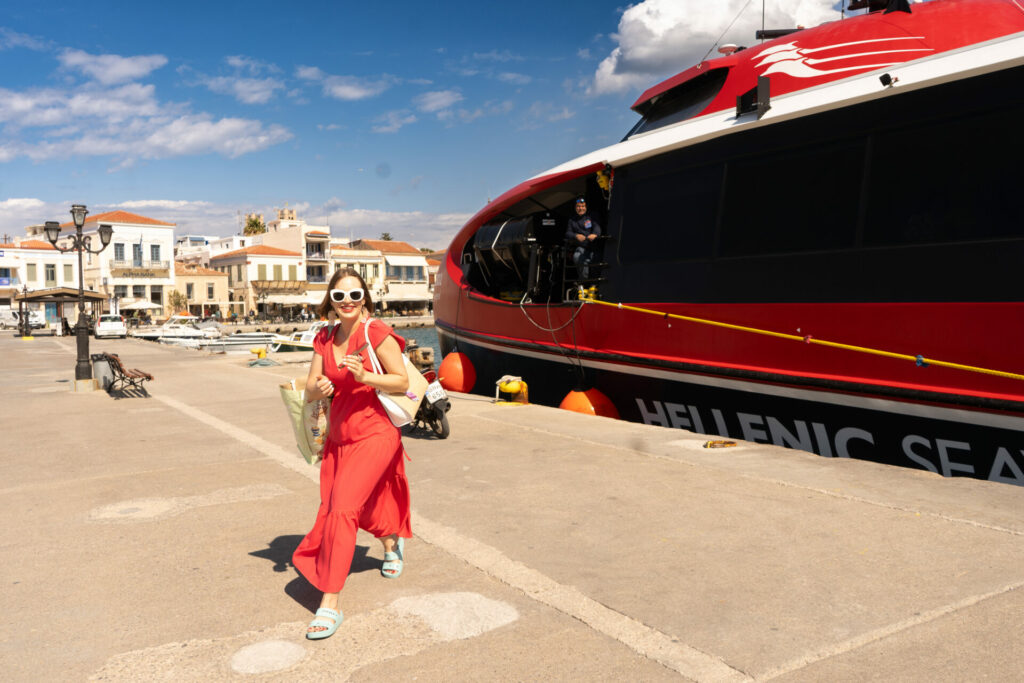
6-What to eat in Greece: Navigating the Greek Gastronomic Culture
The Magic of Mezedes
The Greek way of eating is family-style, with small plates of mezedes that accompany drinks or can serve as an entire meal. Think olives, feta, fried calamari, and dolmadakia — vine leaves stuffed with aromatic rice. Don’t be shy; order a selection and share with your company.
To Repeat or Not to Repeat?
It’s a common practice to receive a complimentary dish at the end of your meal – it’s the Greek way of showing hospitality. This “on the house” treat is known as “syntrofia” and refusing it would be impolite. The food in Greece is meant to be a shared experience, a true feast, so roll up those sleeves and dig in!
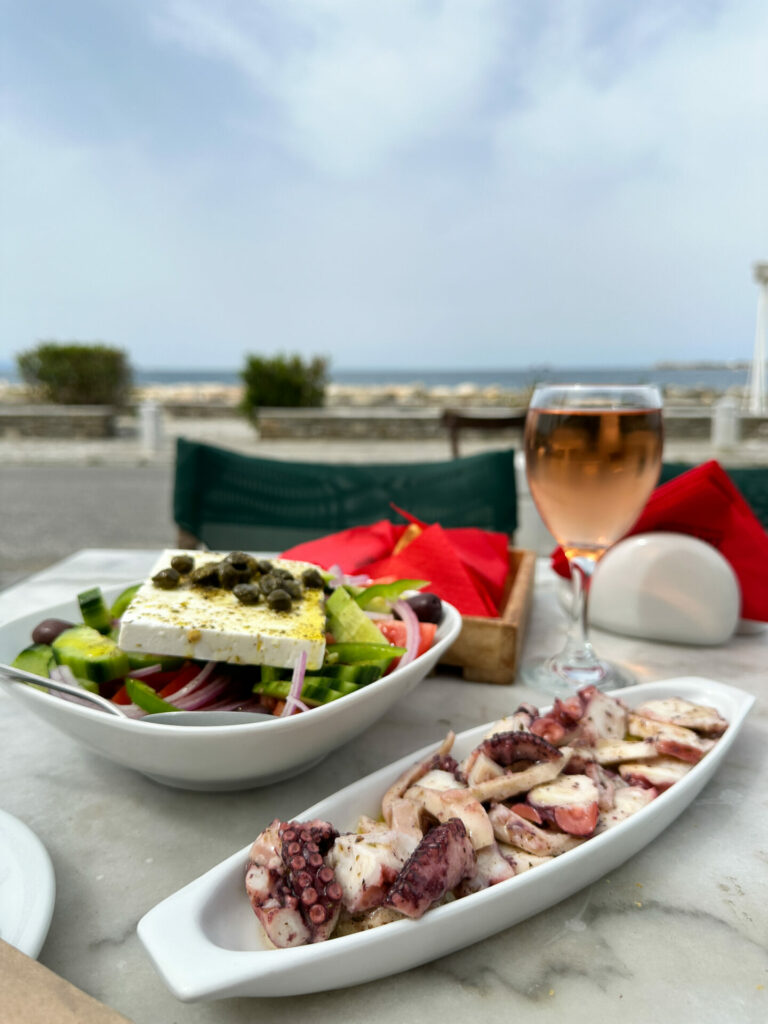
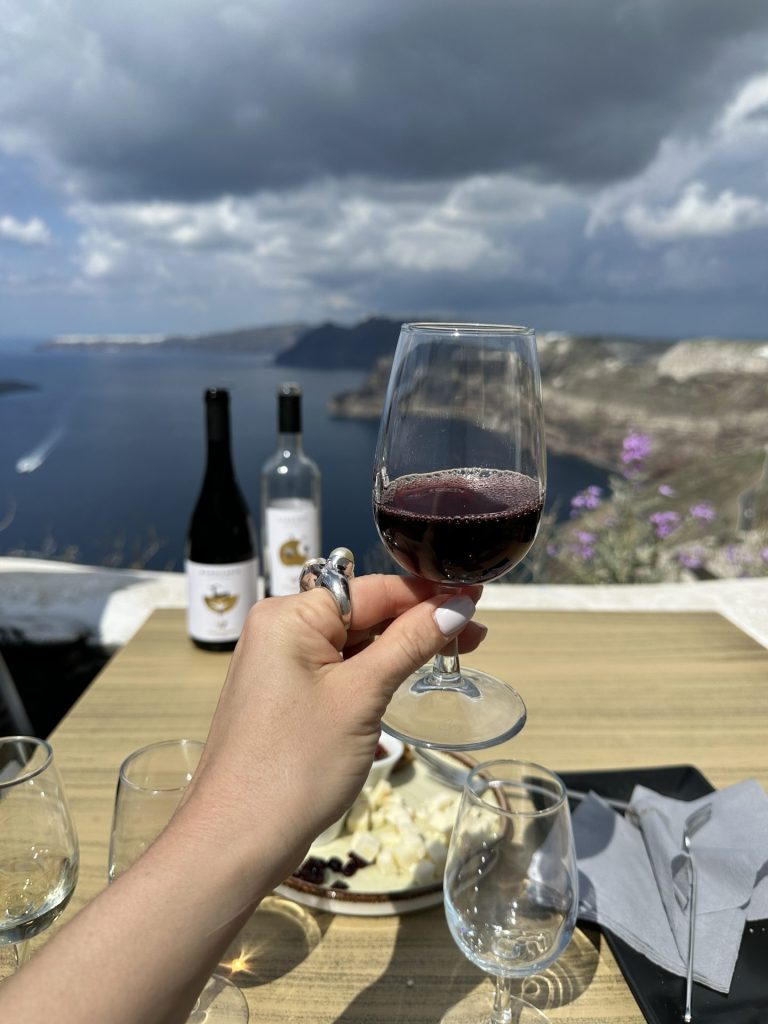
7-Shopping in Greece
Olive Oil and Beyond
What to buy in Greece? Olive oil, the golden liquid of the Gods, is a quintessential Greek purchase. Haggling might be part of the game, and while you might not be able to outdo the lifetime hagglers, it’s always worth trying. From artisanal pottery and honey to the Adriani ceramics of ancient times, Greece offers a treasure trove for savvy shoppers.
Beware the Fur Trade
Fur is a significant industry in Greece, renowned for its quality and craftsmanship. If ethical concerns don’t deter you, a fur coat could be an investment in warmth that will last you a lifetime. However, do your research and find reputable sellers to avoid any issues with animal welfare or counterfeit products.
8-Stepping with Caution Among Historic Stones
Greece’s allure transcends its landscapes, immersing you within millennia of human history. However, keep in mind that ain’t all myth – those marble and granite steps across the Acropolis can be as treacherous as they are magnificent. Exercise caution; there are no heroes in a twisted ankle tale. Especially if you’re venturing into caves and water-supply tunnels, remember the safety of the living should take precedence over the reverence of the ancients.
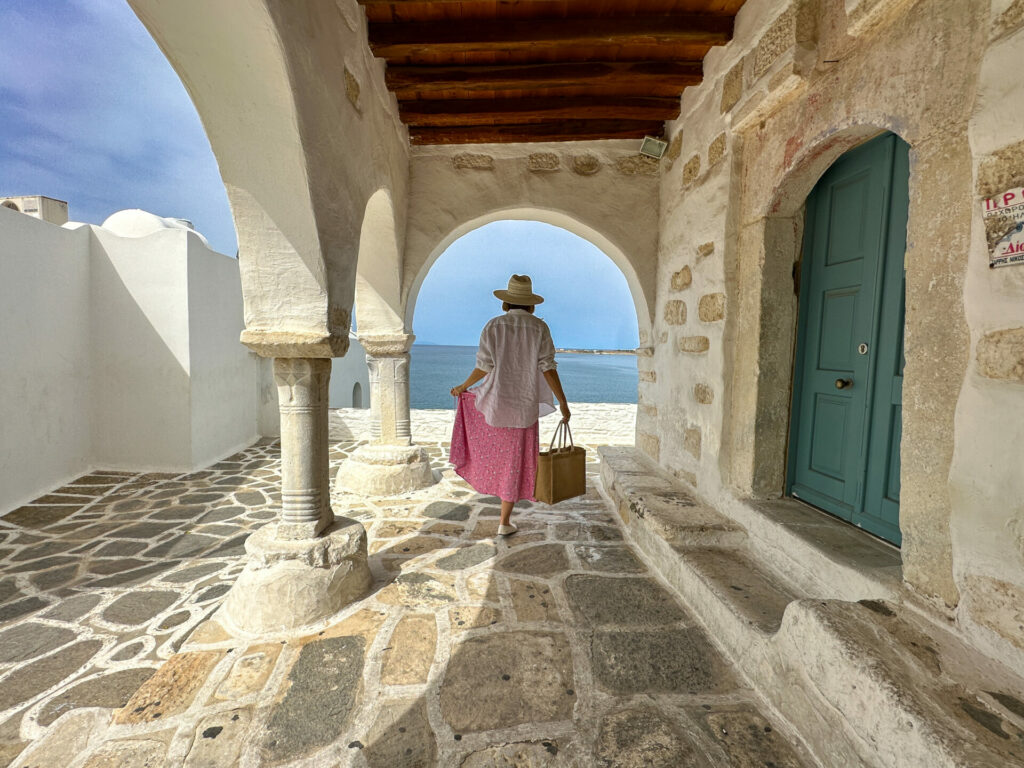
9- The Mediterranean’s Warm Welcome to Your Little Ones
Traveling with your tots? Greece is a playground for family adventures. If you’re concerned about how your tiny travelers might be received abroad, fret not! The Greek hospitality extends to its smallest visitors. Expect the Greeks to pamper your child like royalty—with an extra dollop of ice cream. This is not a cliché; it’s the custom. Many hotels and resorts offer tailored experiences for children and free accommodations, proving that Greece isn’t just a destination for adults to remember but for children to cherish.
In Conclusion: The Odyssey Begins
Your travels in Greece are about to become the stuff of legends. A blend of planning, caution, and wonder will amplify your experience as you step into a kaleidoscope of beauty and history. Remember these tips, but also remember that in this storied land, the best moments are often the unplanned ones—the taverna dinners that turn into feasts, the serendipitous encounters with kindred spirits, and the quiet sanctuary spots that whisper stories of time.
Mastering the Greek Getaway: Must-Know Tips Before You Go
- Mediterranean Siesta: Plan your activities around the midday break (‘mesimeri’) where locals and visitors alike rest. Postpone administrative tasks until after 5 pm to truly experience the Greek lifestyle.
- Sunday Observations: Most shops close on Sundays, reflecting Greece’s day of rest and religious influence, reminding us to find sanctuary in our weekly routine.
- Go with the Flow: Expect delays as ‘island time’ can impact punctuality. Adjust your expectations and enjoy the relaxed pace as part of your Greek adventure.
- Orthodox Influences: Greece’s rich history of Orthodoxy is evident in its many churches. Respecting this history can amplify your cultural experience.
- Ancient Temples: Visiting places like the Acropolis requires a respectful silence for meaningful reflection on Greece’s historical grandeur.
- Smoking Norms: Smoking is common and culturally accepted. While non-smoking areas exist, they may not be as widespread as in other countries.
- Best Visiting Times: Summer is ideal for beaches and flora, while late autumn to early spring reveals a quieter, introspective side of Greece. Off-season visits require thoughtful preparation.
- Transportation: Navigate Greece’s array of transport means, from urban buses and metros to island-hopping ferries.
- Greek Gastronomy: Enjoy mezedes (small plates) shared family-style, and accept complimentary ‘syntrofia’ dishes as part of the Greek hospitality tradition.
- Shopping Tips: Purchase traditional Greek items like olive oil and honey, but engage in haggling wisely and consider ethical implications when buying fur products.
- Safety First: Tread carefully on historical sites like the Acropolis to avoid injuries; safety over reverence.

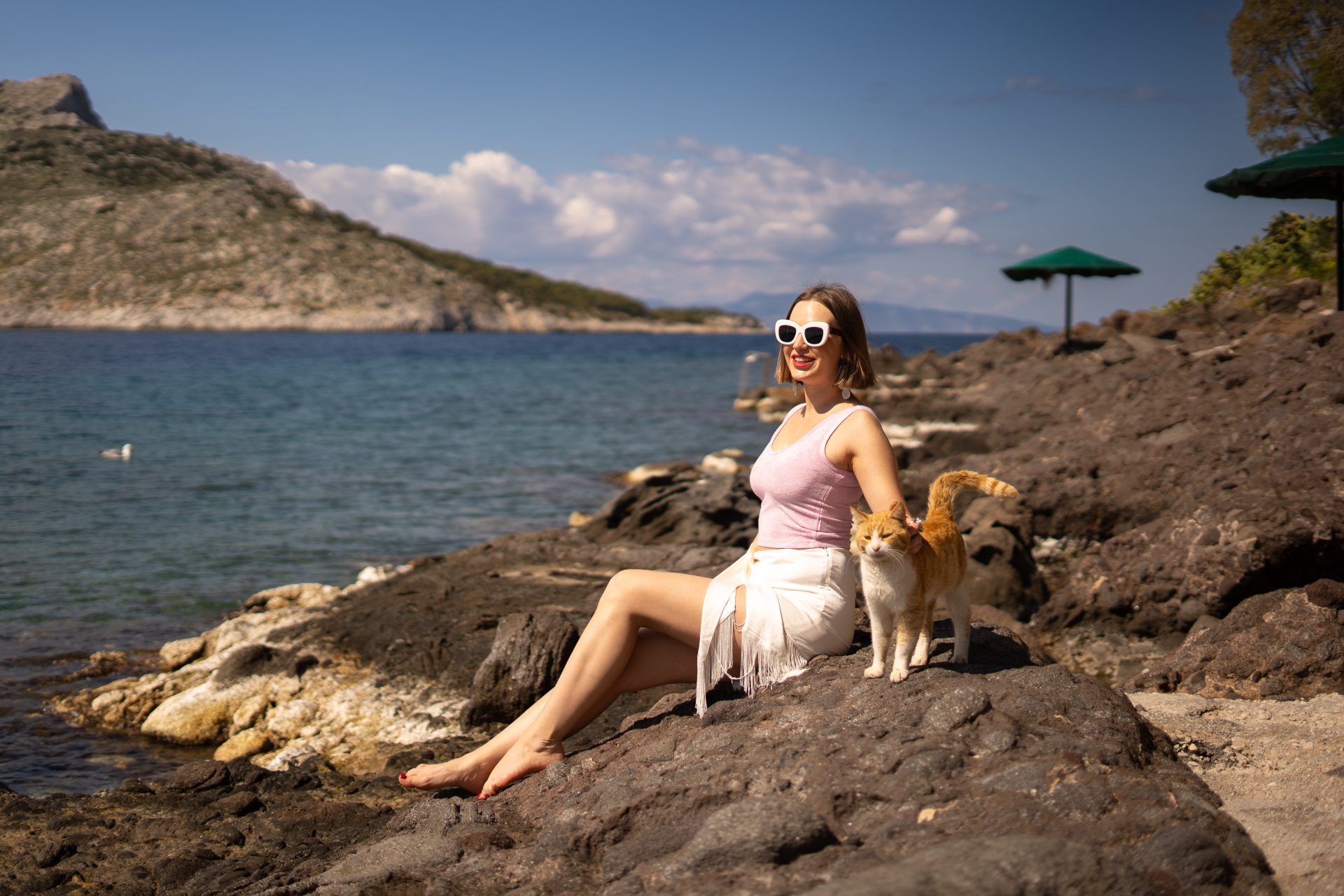
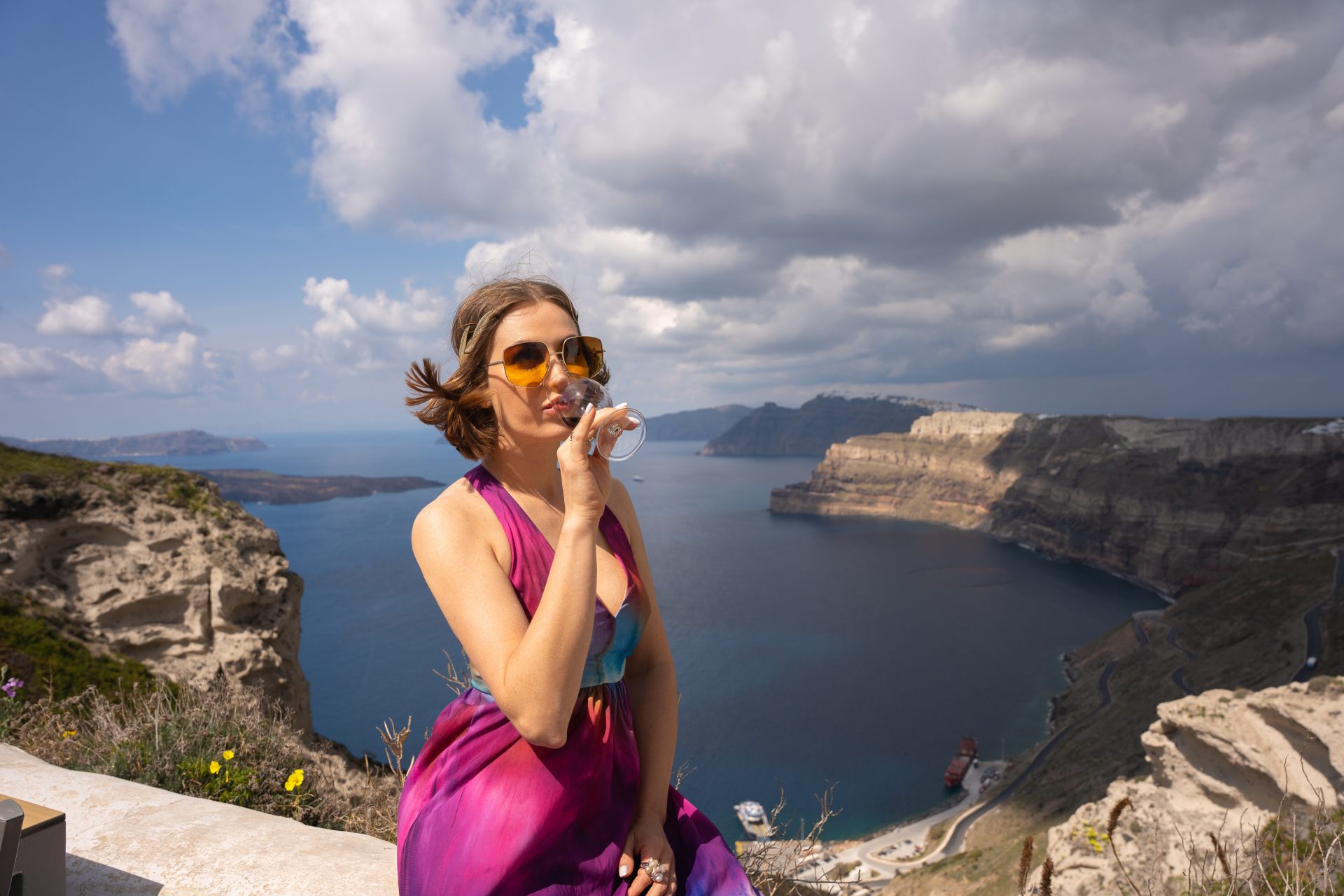


Leave a Reply